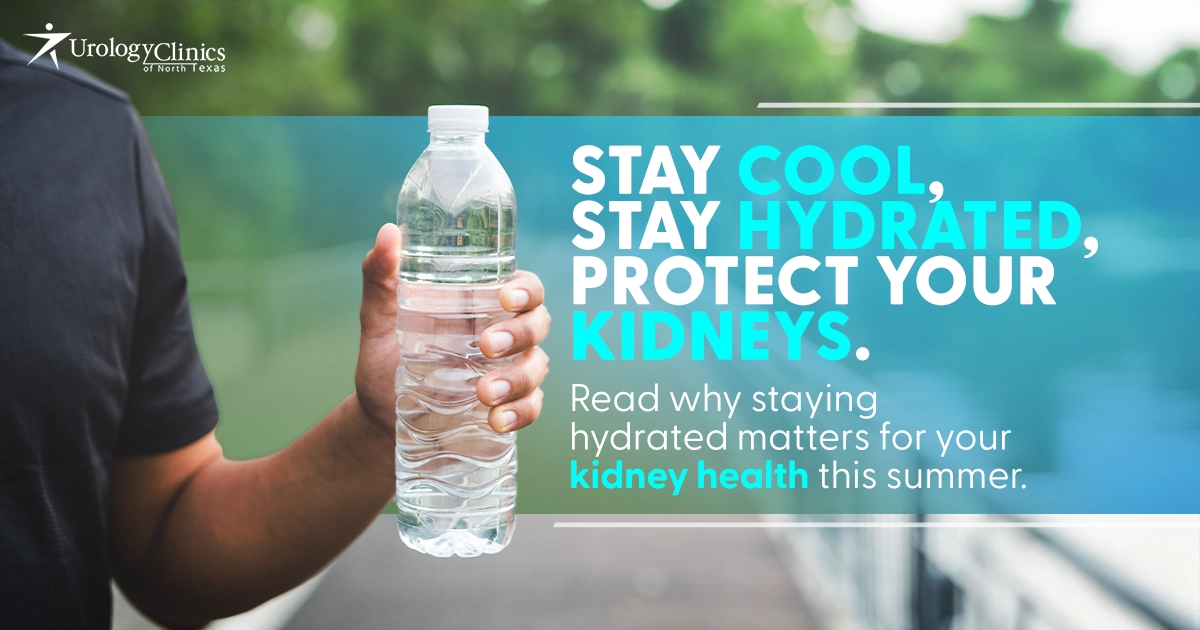When temperatures rise in Texas, so does your body’s need for proper hydration, especially when it comes to keeping your kidneys healthy. We know that kidney health is often overlooked in the summer months, but staying hydrated can help you avoid serious complications like kidney stones, urinary tract infections (UTIs), and other urologic issues.
Why Hydration Is So Important
Your kidneys play a vital role in filtering waste and balancing fluids in the body. When you’re dehydrated, your kidneys don’t function as efficiently. Less water in the body means more concentrated urine, which can increase the risk of forming kidney stones and developing urinary infections. In the Texas heat, your body loses more fluids through sweat and if you’re not replacing what you lose, it can catch up quickly.
Summer & Kidney Stones: What’s the Connection?
Kidney stones are more common in warmer months, and dehydration is one of the biggest culprits. Without enough fluid, minerals in the urine can clump together and form stones. These painful, hard deposits can affect anyone but are especially common in people who don’t drink enough water.
If you’ve ever had a kidney stone, you know it’s something you’d rather avoid. The good news? Staying properly hydrated can dramatically lower your risk.

Signs You May Be Dehydrated
Sometimes it’s easy to forget to drink water, especially when you’re busy or outdoors. Watch for these signs of dehydration:
• Dark yellow or strong-smelling urine
• Fatigue or dizziness
• Headaches
• Dry mouth or lips
• Infrequent urination
If you notice these symptoms, it’s time to increase your fluid intake.
Hydration Tips for a Kidney-Friendly Summer
• Drink before you’re thirsty. Thirst is a sign that you’re already mildly dehydrated.
• Keep a water bottle with you throughout the day and refill often.
• Choose water over sugary drinks, which can add stress to your kidneys.
• Eat water-rich foods like watermelon, cucumbers, and oranges.
• Limit high-sodium foods, which can increase your risk for kidney issues.
• Be mindful during outdoor activities—drink more if you’re exercising or sweating heavily.
When to See a Urologist
If you’re experiencing symptoms like persistent lower back pain, blood in your urine, frequent UTIs, or a history of kidney stones, it’s important to consult a urologist. Preventive care and early diagnosis can make a big difference in protecting your long-term kidney health. Book aurology appointment at one of our locations and get expert care so you can stay healthy all summer long!

